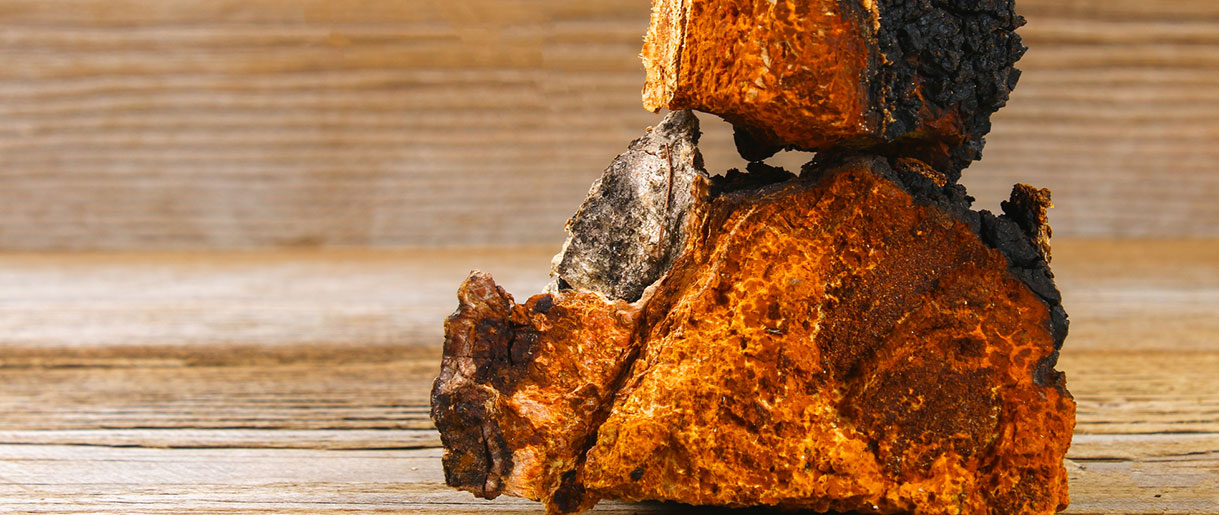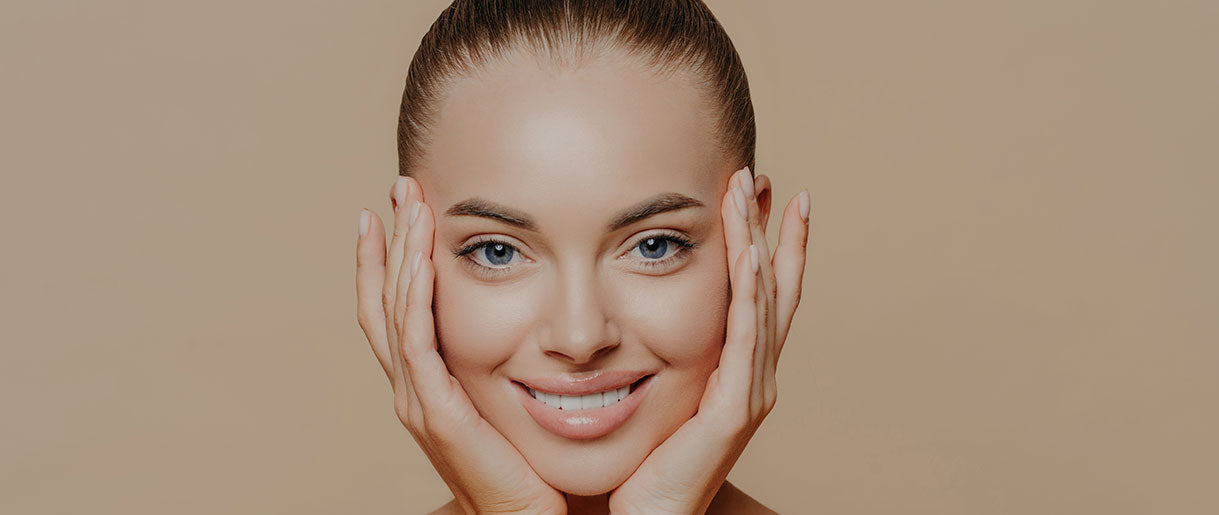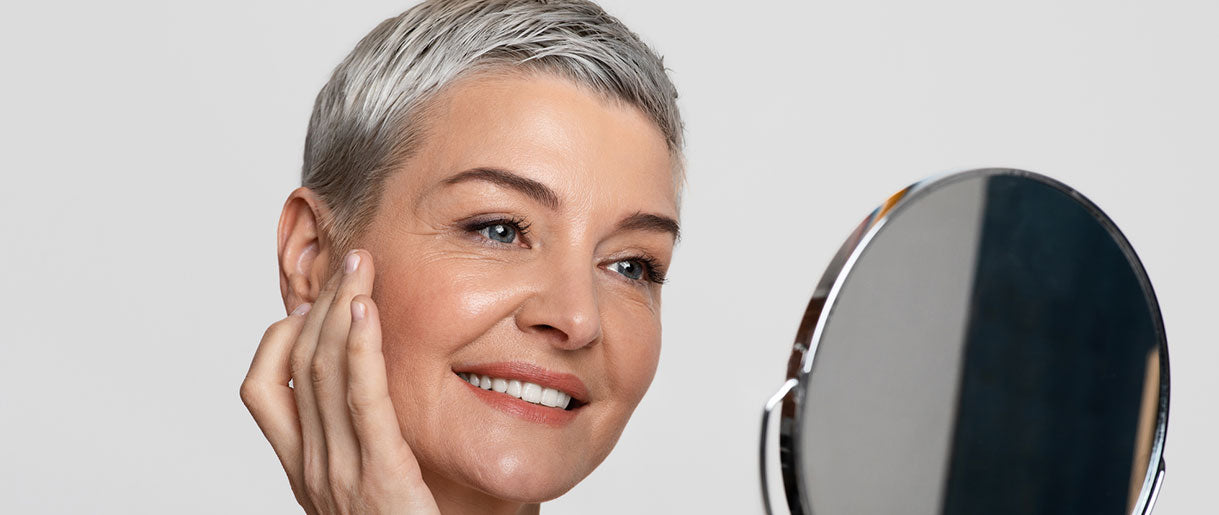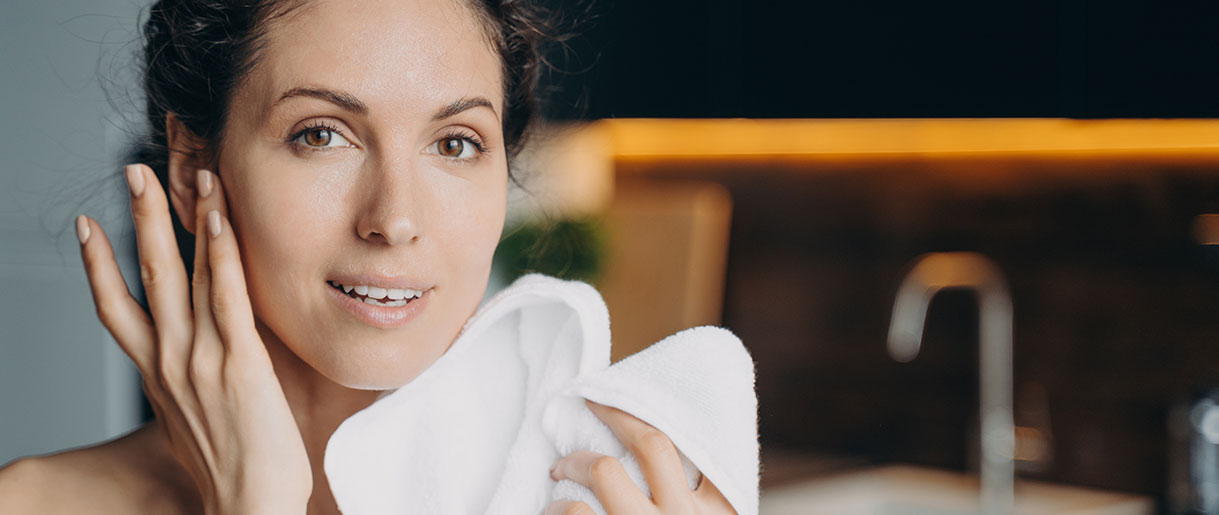Chaga mushrooms are packed with antioxidants, which are great for skin health. These antioxidants combat oxidative stress, which can damage skin cells and lead to premature aging. The polysaccharides in Chaga maintain skin hydration and elasticity, reducing the appearance of wrinkles and fine lines. Furthermore, Chaga possesses anti-inflammatory and antibacterial properties, which may be beneficial in treating conditions such as acne and eczema.
Incorporating Chaga into your skincare routine through quality skincare products or DIY face masks could provide a natural boost to your skin's health and appearance. Remember to test any new skincare products on a small skin patch first to ensure you don't have any adverse reactions.
This article will delve deeper into the science behind the benefits of Chaga for the skin, taking you through a journey of understanding how this humble mushroom can elevate your skincare regimen. We will also provide practical tips on introducing Chaga into your daily routine and exploring the world of natural skincare ingredients.
Understanding Chaga: A Closer Look

Unraveling the Roots: Origin and Historical Use of the Chaga Mushroom
The Chaga mushroom, a species of fungus, has an impressive historical footprint. It grows predominantly on birch trees in cold climates such as Siberia, Northern Canada, Alaska, and some northern areas in the continental U.S. This unique parasitic growth on birch trees, which can take up to 20 years, is what makes Chaga mushrooms so unique and rich in nutrients.
Regarded as one of the most potent medicinal mushrooms, the Chaga mushroom's benefits have been utilized in traditional practices for centuries. It was an essential part of traditional Chinese medicine to boost the body's natural immune system and improve overall health. Today, Chaga is recognized as one of the superfood mushrooms, providing significant benefits to those consuming it.
The Power Within: Biochemical Composition of Chaga
When it comes to the benefits of Chaga, it all boils down to its incredible biochemical composition. Chaga mushrooms are a powerhouse of antioxidants and polysaccharides. The antioxidant property of Chaga essentially eliminates free radical damage, which is highly beneficial for maintaining healthy skin. It also makes Chaga essential to your body's overall stress response.
The polysaccharides found in Chaga also contribute to a host of benefits. They play an integral role in supporting immune health and providing energy. Moreover, they are responsible for maintaining skin hydration and elasticity—another win for Chaga mushroom benefits.
Finally, Chaga contains many other nutrients like vitamins, minerals, and fiber that can support general health. The power of these components in the humble Chaga mushroom makes it so effective for your skin and overall well-being.
he Connection Between Skin Health and Mushrooms

Harnessing the Power of Fungi: The Role of Mushrooms in Traditional Skincare Practices
Mushrooms, those earthy edibles we often see in our salads and pasta dishes, hold a distinguished place in skincare history. Known for their ability to keep skin moist and reduce skin sensitivity, mushrooms have been a part of traditional skincare practices across various cultures. Their ability to treat skin cells, address various skin conditions, and offer such amazing skin support has made them an enduring and valuable ingredient in beauty and skincare.
Beyond their capacity to provide such fantastic skin support, mushrooms offer many other health benefits. These natural foods help strengthen the immune system, which in turn supports healthy skin. Mushroom benefits for skin health are diverse and significant, from promoting skin regeneration and collagen production to helping reduce skin inflammation.
Grounded in Science: The Research Supporting the Skin Health Benefits of Mushrooms
Recent scientific research bolsters the long-standing faith in the health benefits of mushrooms, especially concerning skin health. Studies show that(1) many mushrooms fight free radicals and have agents that combat oxidative stress and can prevent skin damage.This capability is critical for skin elasticity, offering outstanding skin support that can repair damaged skin and maintain its youthful appearance.
Moreover, certain mushrooms contain betulonic acid, which selectively destroys cancer cells.This feature brings the potential for treating skin cancer, and when combined with the ability of mushrooms to reduce dark sunspots effectively, it makes them a potent ally in skin care.
Notably, mushrooms are also a rich source of protein-building amino acids necessary for maintaining skin health. They aid in collagen production, promoting skin elasticity and moistness.
Two particular mushrooms stand out for their skincare benefits: Chaga and Shiitake. As we've explored earlier, Chaga has many skin-friendly properties, while Shiitake contains kojic acid, a natural compound known for its skin-lightening effect.
Chaga's Magnificent Benefits for Skin

Chaga's Shield: Antioxidant Properties and Their Role in Skin Protection
Oxidative stress, characterized by an overproduction of free radicals, significantly contributes to skin damage. These free radicals, usually produced due to sun exposure and harmful UV rays, can lead to skin discoloration, induce dark sunspots, and accelerate aging. Here's where the Chaga mushroom benefits for skin step into the spotlight.
Chaga benefits for skin primarily derive from its high antioxidant content. Chaga is known to have one of the highest Oxygen Radical Absorbance Capacity (ORAC) scores—a measure of antioxidant potency. The antioxidants in this parasitic mushroom that grows on the birch tree are specifically adept at neutralizing these free radicals, offering UV protection and reducing the damage caused by the sun's dangerous rays.
The Fountain of Youth: Anti-Aging Properties of Chaga
One of the most lauded Chaga mushroom skin benefits is its ability to slow aging. Polysaccharides and sterols, critical components found in Chaga, are known for their role in promoting skin elasticity and restoring vitality to tired and aging skin.
Chaga mushroom offers a valuable source of superoxide dismutase, an enzyme that protects against oxidative damage and is known to restore elasticity and rebuild skin tissue. These compounds work together to reduce the appearance of wrinkles and fine lines, resulting in healthier, youthful-looking skin.
Nature's Soothing Touch: Anti-Inflammatory and Antibacterial Properties of Chaga
Inflammation and bacterial infections can lead to many skin issues, from acne and eczema to simple skin irritation caused by bug bites or sun damage. Once again, the Chaga mushroom benefits for the skin are evident in how it deals with these challenges.
Beta-glucans, a type of polysaccharide found in Chaga, are known for their anti-inflammatory properties. They can help soothe skin irritation, reduce inflammation, and even help minimize clogging of pores, a major contributor to acne. The anti-inflammatory components in Chaga also benefit those who have suffered from prolonged exposure to harmful UV exposure.
Beyond these fantastic benefits, some research suggests(2) Chaga could also offer some protection against the harmful effects of UV rays, thanks to the presence of kojic acid, a compound known for its ability to lighten skin and provide sun protection.
Practical Ways to Incorporate Chaga into Your Skincare Routine

Pick Wisely: Tips for Choosing High-Quality Chaga Skincare Products
When it comes to skincare products, quality is vital. If you're considering incorporating Chaga into your routine, here are a few tips to ensure you choose the best products.
- Read the Label: Always check for the concentration of Chaga extract in the product. Higher concentrations typically offer more benefits.
- Purity Matters: Avoid products with a long list of artificial additives. The cleaner the product, the better.
- Trustworthy Brands: Opt for brands with a reputation for quality and transparency about their ingredients and processes.
A popular way to incorporate Chaga into your routine is by consuming Chaga tea. The mild, slightly sweet taste of Chaga tea makes it a delightful addition to your daily regimen.
Making Chaga mushroom tea at home is easy—simmer Chaga chunks or powder in water for at least an hour, strain, and enjoy!
DIY Spa Day: Making a Chaga Face Mask at Home
Making a Chaga face mask at home can be an exciting and rewarding experience for those who love a bit of DIY skincare. Here's a simple recipe:
1. Brew a strong cup of Chaga tea and let it cool.
2. Combine a tablespoon of the tea with a tablespoon of honey and a tablespoon of aloe vera gel.
3. Apply the mixture to your face, let it sit for 15-20 minutes, then rinse with warm water.
This face mask will provide Chaga's soothing benefits and can help improve skin texture and tone.
Take Note: Precautions to Keep in Mind When Using Chaga for Skin
While Chaga is generally safe for most people, there are a few things to consider before applying it to your skin or drinking mushroom coffee or Chaga tea regularly.
- Allergies: If you're allergic to mushrooms, you might also react to Chaga. Always do a patch test when trying a new product.
- Interactions: Chaga can interact with some medications, particularly those that affect blood clotting. If you're taking any medication, consult with a healthcare professional before adding Chaga to your regimen.
- Pregnancy and Breastfeeding: There is not enough research on the safety of Chaga during pregnancy and breastfeeding. It's best to avoid it during these periods unless directed by a healthcare professional.
With these tips and precautions, you can confidently start exploring the benefits of Chaga skincare products. As with all skincare changes, give it time, observe the effects, and adjust as needed. Your skin will thank you!
Chaga Benefits For Skin Video
FAQs About Chaga Benefits for Skin
Can I Use Chaga Skincare Products Daily, Or Is There A Usage Limit?
While Chaga skincare products are generally safe for daily use, as with any skincare product, individual tolerance and reaction can vary. It's always recommended to start with a patch test and monitor your skin's response. If no irritation or adverse reaction occurs, you can start incorporating Chaga skincare products into your daily routine.
However, suppose you're using other skincare products or medications that might interact with Chaga or have a known mushroom allergy. In that case, it's advisable to consult a dermatologist or healthcare provider before starting regular use.
Remember, too much of even a good thing can be harmful. Even though Chaga is natural, it's potent, and your skin needs a balanced regimen. So, use it in moderation and always consider your skin's reaction.
Are There Any Side Effects Of Using Chaga On The Skin?
There are no widely reported side effects from applying Chaga directly to the skin in the form of creams, lotions, or serums. Chaga is generally considered safe for topical use.
However, as with any skincare product, individual reactions can vary. Therefore, while most people will not experience the side effects of mushrooms, some people may react to Chaga, especially if allergic to other mushroom types.
Signs of an allergic reaction can include redness, itching, swelling, or a rash. It's always a good practice to perform a patch test when trying a new skincare product, applying it to a small skin area, and waiting 24 hours to see if a reaction occurs.
Can Chaga Be Used For All Skin Types, Including Sensitive Skin?
Yes, Chaga can typically be used for all skin types, including sensitive skin. It's known for its soothing and anti-inflammatory properties, which can particularly benefit those with sensitive or irritated skin. However, individual reactions can vary, and just because a product is natural doesn't mean it's incapable of causing a reaction.
For those with sensitive skin, performing a patch test before incorporating any new product into your skincare routine is especially important. This involves applying a small amount of the product to a discreet area of skin, like your inner wrist, and then waiting 24 hours to see if any reaction occurs.
Can Chaga Help With Hyperpigmentation Or Dark Spots On The Skin?
Chaga mushroom is rich in antioxidants, known for their ability to combat oxidative stress, and may help reduce signs of skin aging such as hyperpigmentation or dark spots. In addition, Chaga contains substances like betulinic acid and kojic acid, which have been reported in some studies(3) to have skin-lightening properties.
However, it's important to note that results can vary from person to person, and a product's effectiveness can depend on many factors, including the concentration of Chaga and how regularly the product is used.
While Chaga might help to reduce the appearance of dark spots over time, it is not a quick fix. For persistent hyperpigmentation issues, it's always advisable to consult with a dermatologist for a personalized treatment approach.
Key Takeaways
Chaga mushroom, a superfood loaded with antioxidants, has been shown to provide a host of benefits for skin health. From its antioxidant properties combating oxidative stress and free radical damage to its anti-inflammatory and antibacterial benefits, Chaga is truly a force to be reckoned with. Beyond these, the Chaga mushroom skin benefits also extend to anti-aging properties, promoting skin elasticity and potentially aiding in reducing hyperpigmentation or dark spots.
Indeed, the world of natural skincare ingredients is vast and fascinating. While Chaga stands out for its unique properties and potent benefits, it is but one of many natural ingredients that can help nourish and protect your skin. So, don't stop exploring. Dive deeper into the world of natural skincare, and you might find your next holy grail product.
Incorporating Chaga into your skincare routine could be a game-changer, primarily if you aim to address specific skin concerns or add a natural boost to your regimen. As with any new skincare product, it's essential to start slow, observe your skin's reactions, and adjust accordingly. And, of course, always listen to your skin's needs.
As we conclude, we'd love to hear from you. Have you used Chaga in your skincare routine before? How was your experience? Or perhaps you're curious to try it out? Let us know in the comments below. Your insights and experiences enrich our community's understanding and make this journey through the world of skincare even more rewarding.
References
- Antioxidants of Edible Mushrooms, (1)https://www.ncbi.nlm.nih.gov/pmc/articles/PMC6331815/
- Chaga mushroom (Inonotus obliquus) polysaccharides exhibit genoprotective effects in UVB-exposed embryonic zebrafish (Danio rerio) through coordinated expression of DNA repair genes, (2)https://www.ncbi.nlm.nih.gov/pmc/articles/PMC7868817/
- Review on the Use of Kojic Acid—A Skin-Lightening Ingredient, (3)https://www.mdpi.com/2079-9284/9/3/64









Let Us Know Your Comments